Anise has a distinct, sweet, and licorice-like flavor. Star anise seeds are a commonly used alternative to anise in many recipes. It has a similar licorice-like flavor profile but is slightly more bitter and has a more pungent aniseed taste. Other substitutes for anise include fennel seed, caraway seed, or even ground cinnamon or nutmeg.
Table of Contents
What does anise taste like?
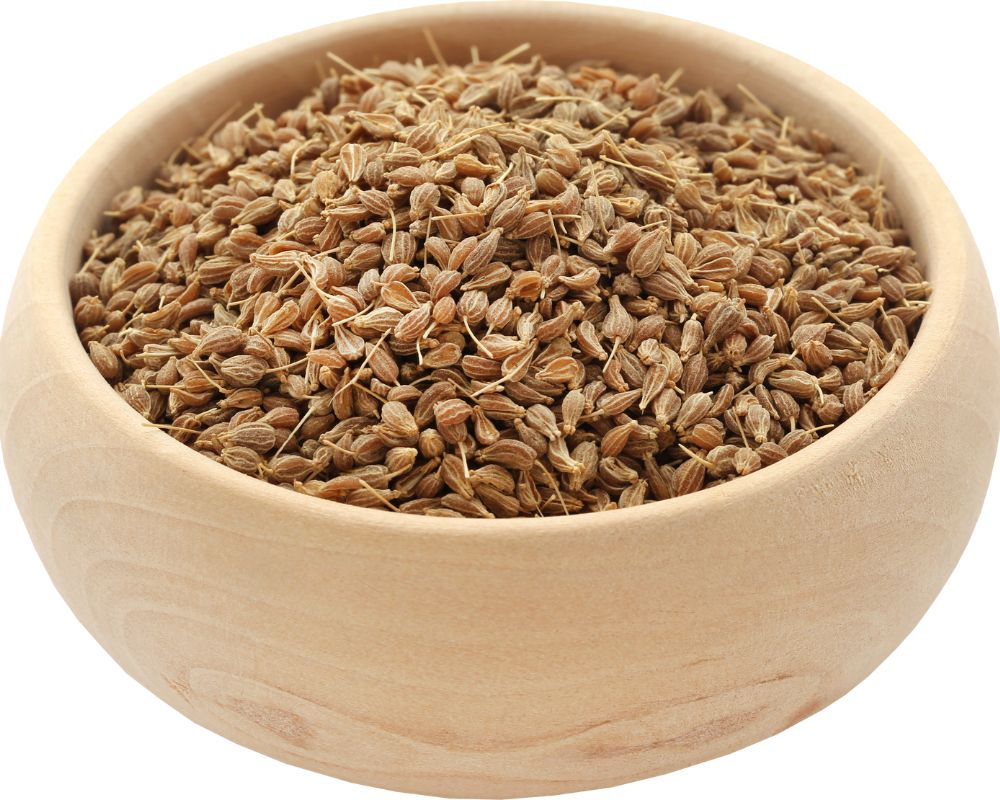
The distinct flavor of anise is a sweet and licorice flavor with a slightly bitter aftertaste. Its flavor profile is warm, aromatic, and somewhat spicy. Anise is commonly used as a flavoring in sweet dishes, baked goods, and beverages, including liqueurs like absinthe and ouzo.
You can compare it to other licorice-flavored ingredients, such as fennel or black licorice candy. The flavor is distinct and can be pretty intense, so if you’re using anise as a substitute for another ingredient, it’s essential to remember that it may significantly impact your dish’s overall flavor.
What is star anise?
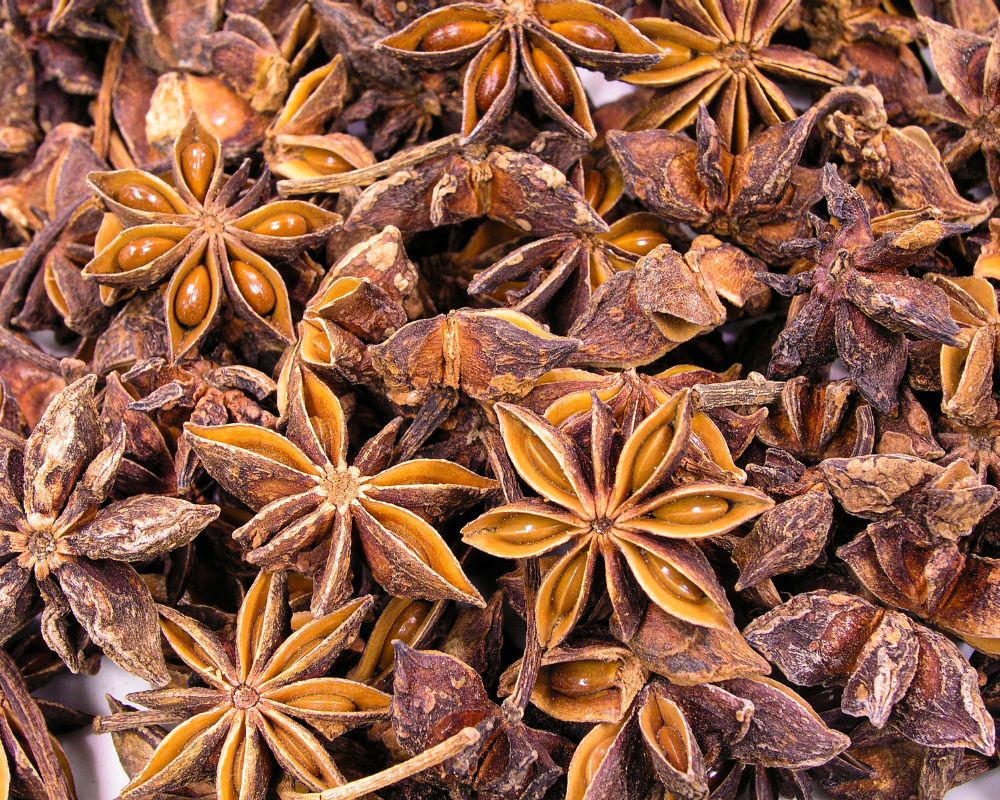
Star anise is a star-shaped seed pod from the Chinese evergreen tree (Illicium verum). It contains several seeds with a strong, sweet, and licorice-like flavor.
The pod is usually harvested and dried before being used in cooking. Star anise is not the same as true anise, which belongs to the parsley family.
Can you substitute fennel for anise?
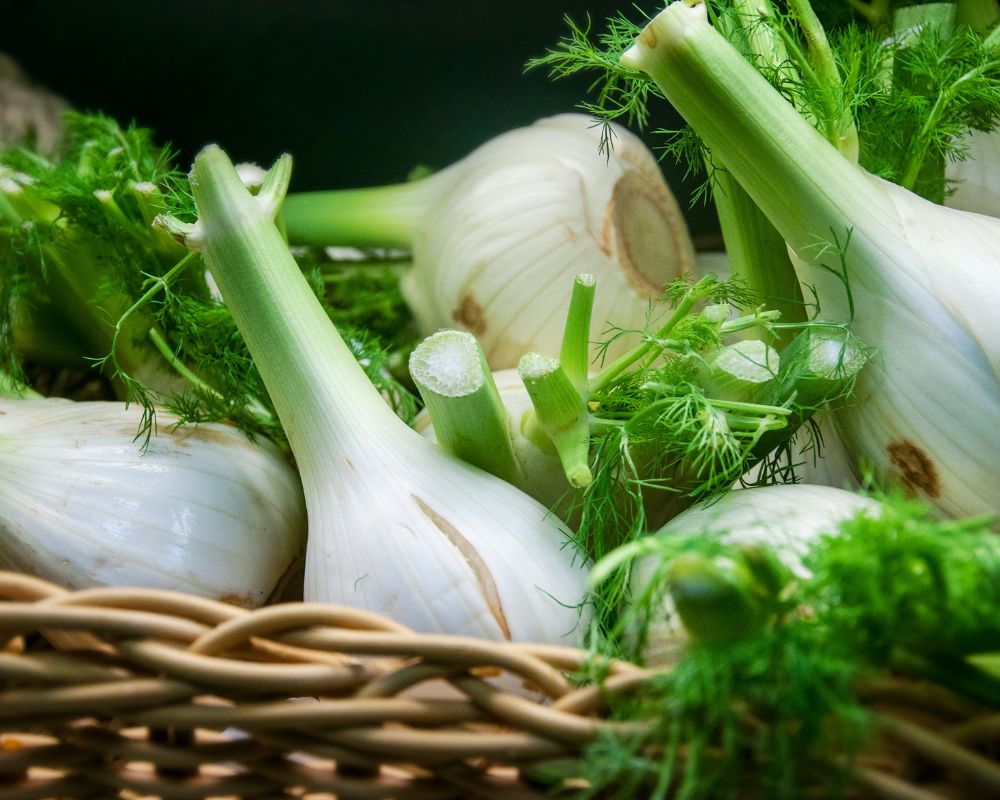
Fennel and anise are two spices often confused because they share similar flavor profiles. This may be due to the presence of anethole in both. However, they are not interchangeable in all recipes, as there are some notable differences in their taste and aroma.
Fennel has a sweet, licorice-like flavor that is more subtle than anise. It also has a slightly earthy, herbaceous note, which is not in anise. In contrast, anise has a more intense, sharper flavor and vital notes of licorice and sweetness.
Both fennel and anise are common in Mediterranean, Middle Eastern, and Indian cuisines.
Here’s where you can substitute anise for fennel:
- Tomato soup
- Italian sausage
- Roasted vegetables
- Bread
- Tea
What are some other anise substitutes?
If you’re out of anise, don’t worry, there are plenty of substitutes for your favorite spice. And you can find all of them at the grocery store or in your pantry.
Here are the best substitutes for star anise:
- Chinese five-spice powder
- Caraway seeds
- Allspice
- Cassia bark powder
- Licorice roots
- Cloves
- Anise extract
- Cinnamon
- Tarragon
- Chervil
- Licorice liqueur
| Chinese five-spice powder | Its flavor profile is sweet, savory, slightly spicy, and fragrant, goes well with stir-fries, marinades, and braised dishes |
| Caraway seeds | Have a slightly nutty and earthy flavor with a hint of anise, great substitute in bread, sauerkraut, and stews |
| Allspice | Has a warm, sweet, and slightly spicy flavor, with notes of cinnamon, nutmeg, and cloves, can substitute for anise in meat dishes, desserts, and mulled wine recipes. |
| Cassia bark powder | Has a flavor profile similar to cinnamon, can substitute for anise in baked goods, stews, and marinades |
| Licorice roots | Have a sweet and woody flavor, with a strong taste of licorice, slightly sweeter than anise, work well as a substitute for anise in recipes such as tea, candy, and desserts |
| Cloves | Have a solid and spicy flavor with a hint of sweetness and warmth, a great substitute for anise in mulled wine, jams, buttercreams, pies, some sweets, and marinades |
| Anise extract | A liquid flavoring made from anise seeds, with a strong, sweet, licorice-like flavor, powerful substitute for anise in recipes such as baked goods |
| Cinnamon | Sweet, warm spice with a lovely profile similar to anise, a good substitute in sweet dishes like cakes, cookies, and bread |
| Tarragon | Sweet and slightly bitter flavor, with notes of licorice, works well as a substitute in savory dishes like sauces, marinades, and dressings |
| Chervil | Sweet flavor, hints of parsley, and an earthy taste, substitutes for anise in savory dishes like soups, stews, and sauces |
| Licorice liqueur | Sweet and strong alcoholic beverage made from anise seeds, can be used as a substitute in recipes that call for anise-flavored liqueurs |
1. Chinese Five-Spice Powder
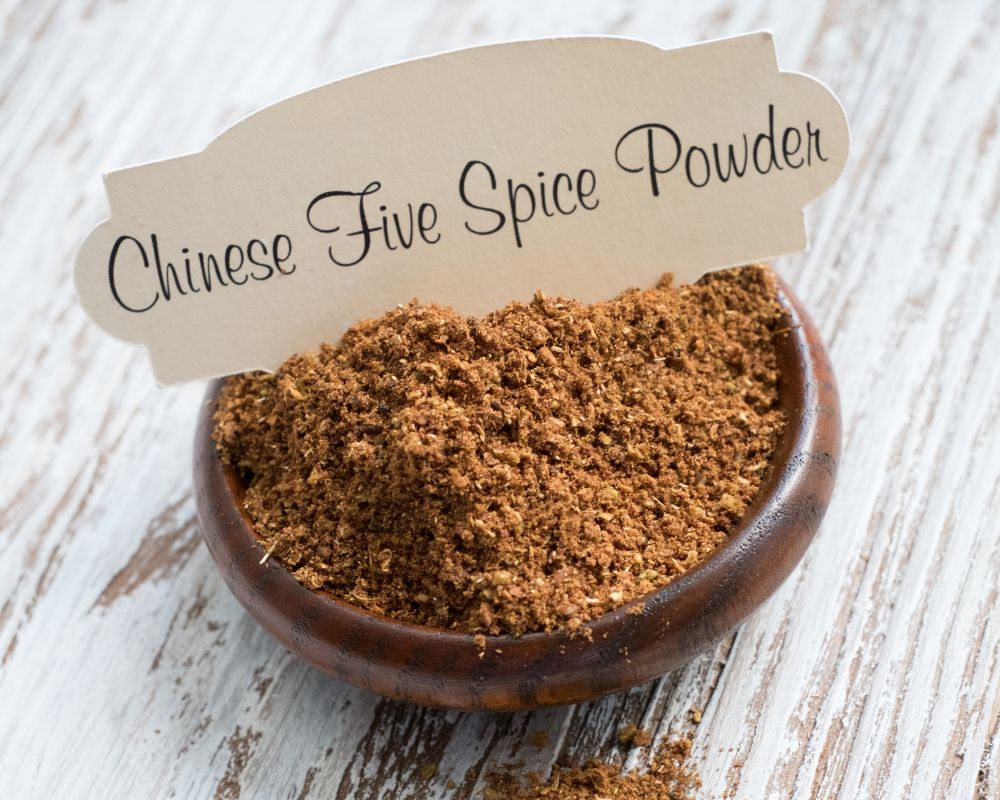
This blend typically contains five spices:
- Cinnamon
- Cloves
- Fennel
- Star anise
- Szechuan peppercorns
Its flavor profile is sweet, savory, slightly spicy, and fragrant.
Chinese Five-Spice Powder can substitute for anise in stir-fries, marinades, and braised dishes. To get the same flavor as 2 teaspoons of Chinese Five-Spice Powder, you can use 1 to 1.5 teaspoons of ground star anise.
2. Caraway Seeds
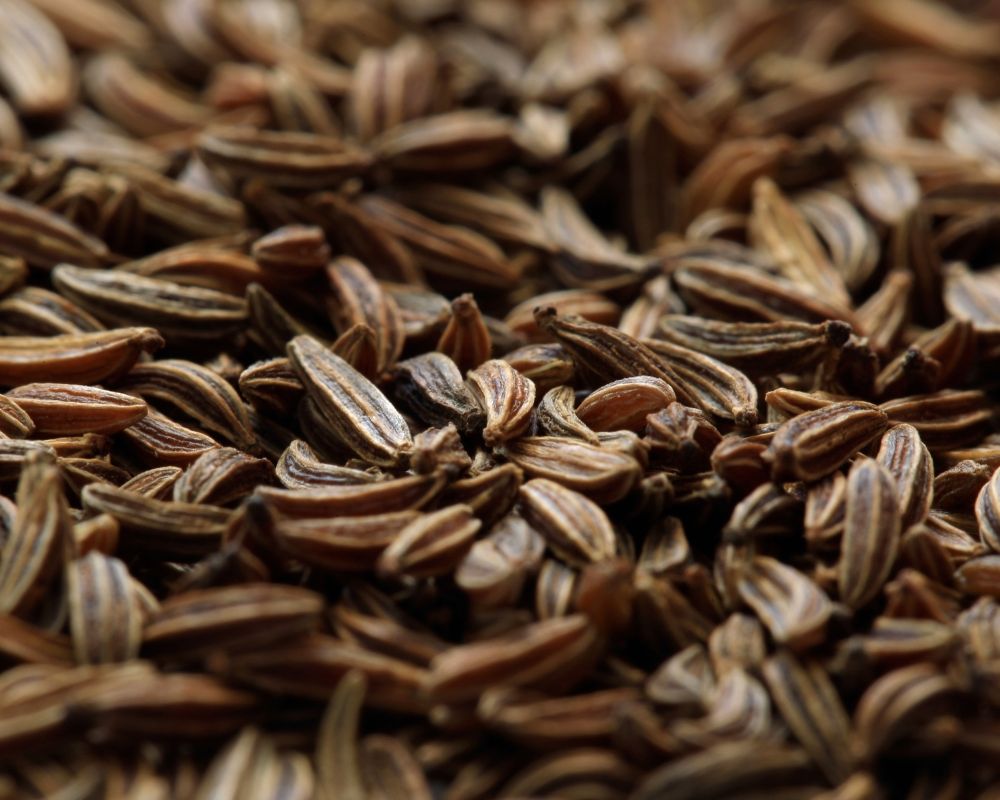
These seeds have a slightly nutty and earthy flavor with a hint of anise. You can substitute anise for them in bread, sauerkraut, and stews.
About 0.5 teaspoons of caraway seeds will equal 1 teaspoon of star anise.
3. Allspice
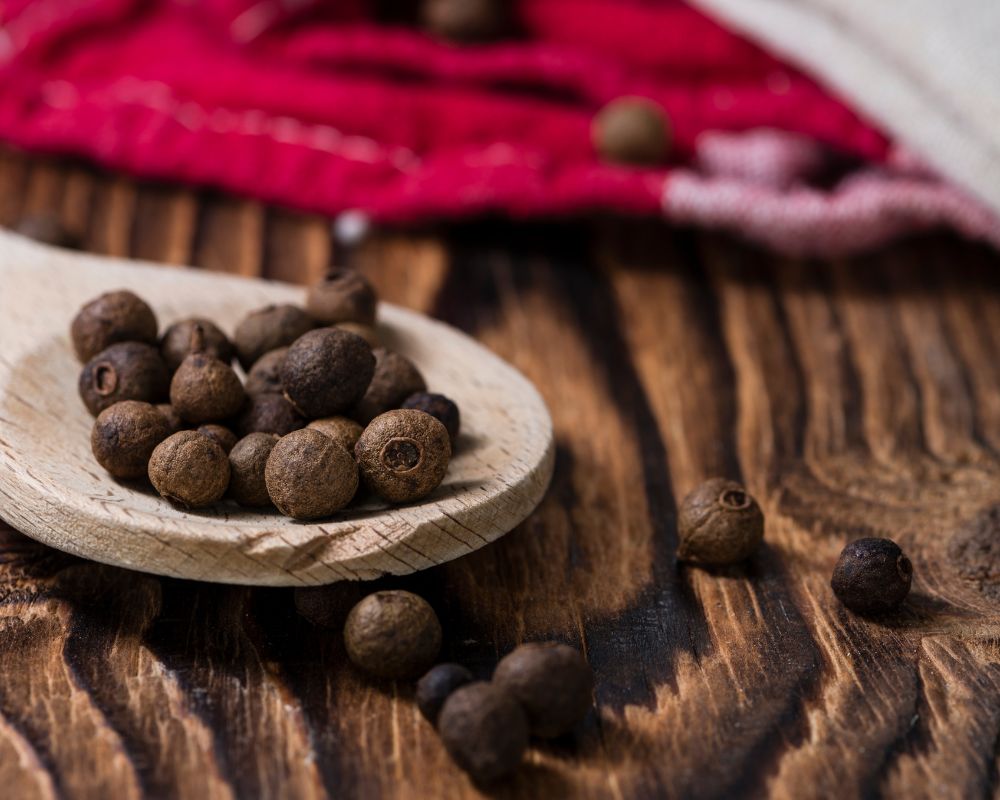
Allspice comes from the dried berries of the allspice tree. Allspice has a warm, sweet, and slightly spicy flavor, with notes of cinnamon, nutmeg, and cloves.
Allspice can substitute for anise in meat dishes, desserts, and mulled wine recipes. The ideal ratio for substitution is 1/2 teaspoon of allspice for 1 teaspoon of anise.
4. Cassia Bark Powder
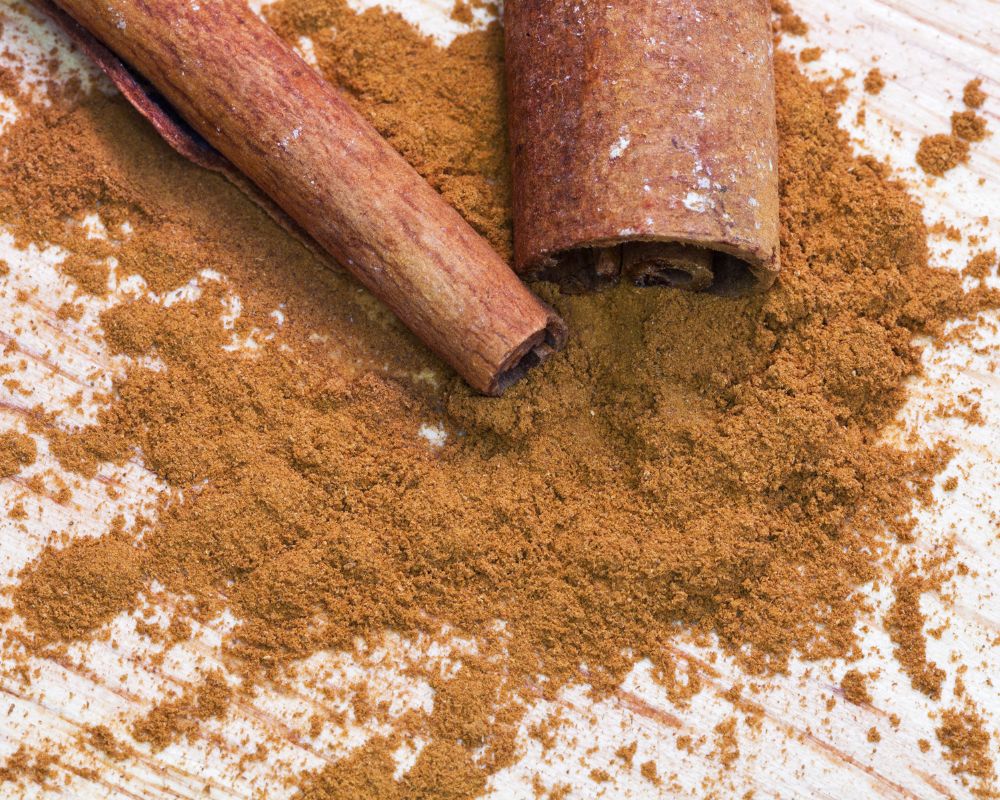
This spice is derived from the bark of the cassia tree and is frequently included in Chinese and Indian cuisine. It has a flavor profile similar to cinnamon, with a slightly more robust flavor.
Cassia bark powder can substitute for anise in baked goods, stews, and marinades. To get the same result as 1 teaspoon of star anise, use 1 teaspoon of cassia bark powder.
5. Licorice Roots
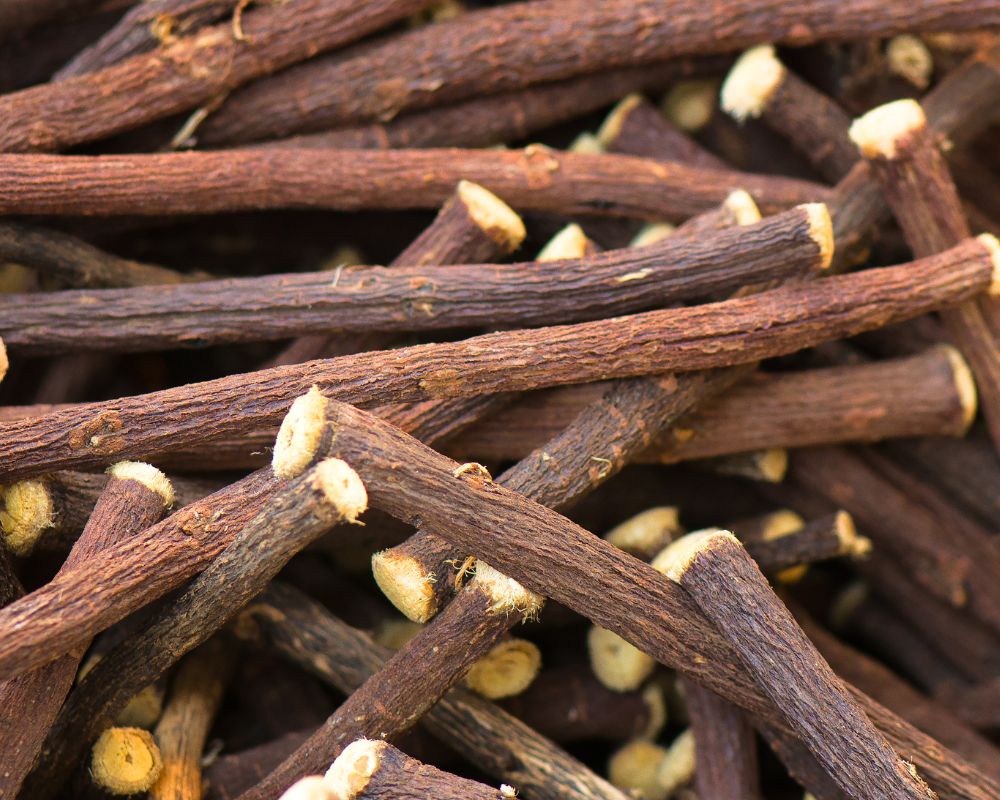
Licorice roots have a sweet and woody flavor, with a strong taste of licorice. They are slightly sweeter than anise.
You can use them as a substitute for anise in recipes such as tea, candy, and desserts, where you need some extra sweetness. Use 1 teaspoon of licorice roots to equal 1 teaspoon of star anise.
6. Cloves
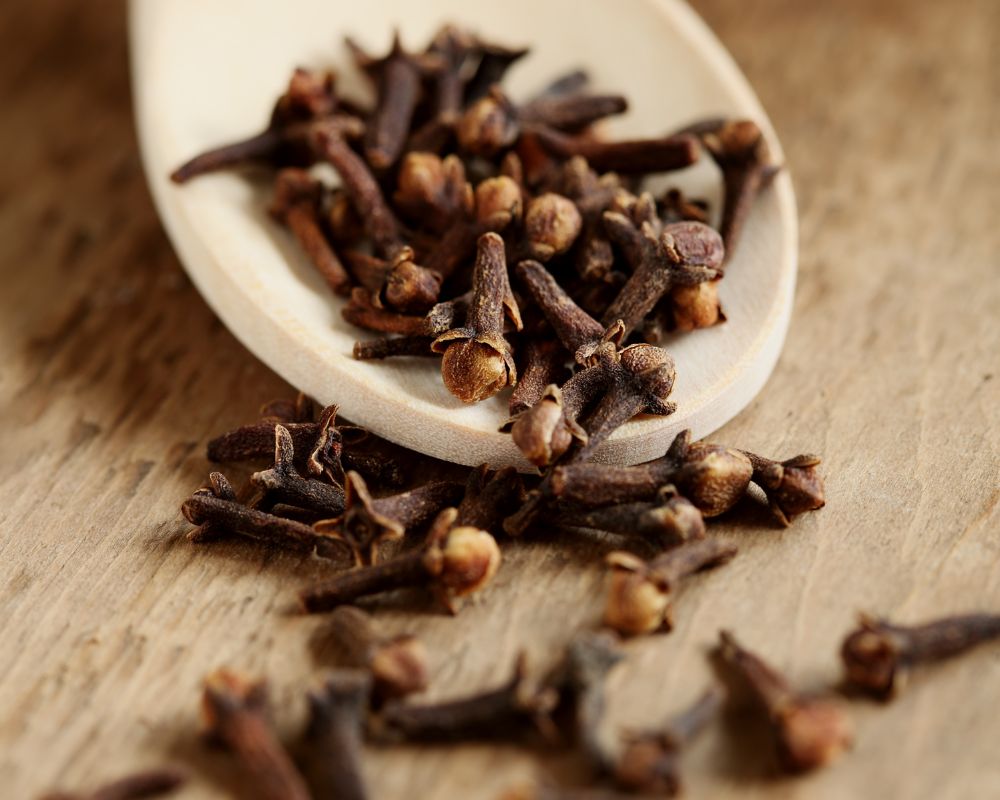
These have a solid and spicy flavor with a hint of sweetness and warmth. Cloves are a great substitute for anise in mulled wine, jams, buttercreams, pies, some sweets, and marinades. Just remember to grind the whole cloves into a fine powder.
The recipe calls for 1 teaspoon of ground cloves to 2 teaspoons of anise.
7. Anise Extract
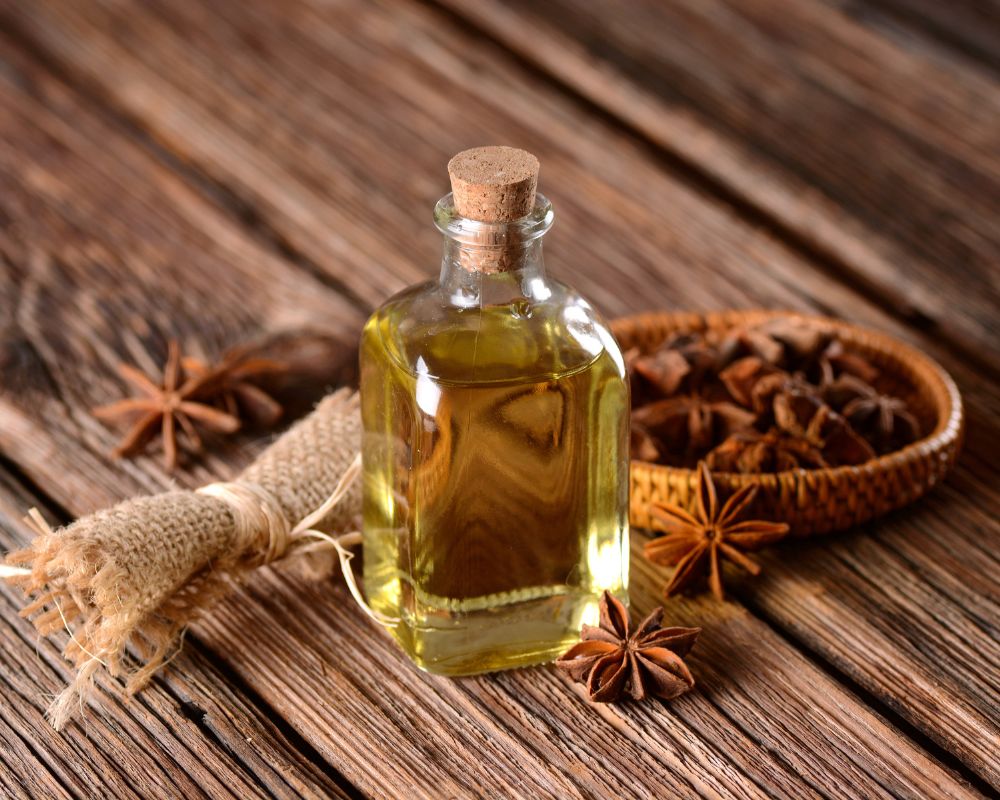
Anise extract is a liquid flavoring made from anise seeds. It has a strong, sweet, licorice-like flavor, and a little goes a long way. You can use anise extract as a substitute for anise in recipes such as baked goods.
The ratio is 1/2 teaspoon of anise extract for every teaspoon of star anise.
8. Cinnamon
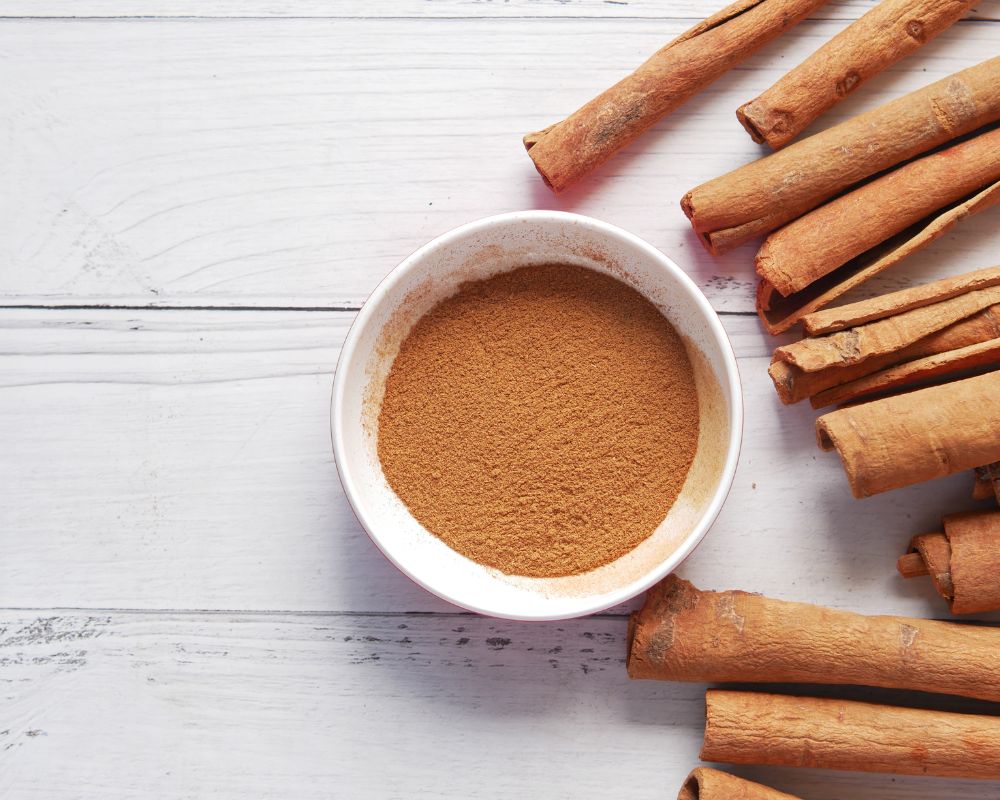
Cinnamon is a sweet, warm spice with a lovely profile similar to anise. It is generally a good substitute for anise in sweet dishes like cakes, cookies, and bread.
Cinnamon has a less licorice-like flavor than anise, so it will change the taste of the final dish, but it can still provide a warm and spicy flavor.
Instead of 1 teaspoon of star anise, use 2 teaspoons of cinnamon.
9. Tarragon
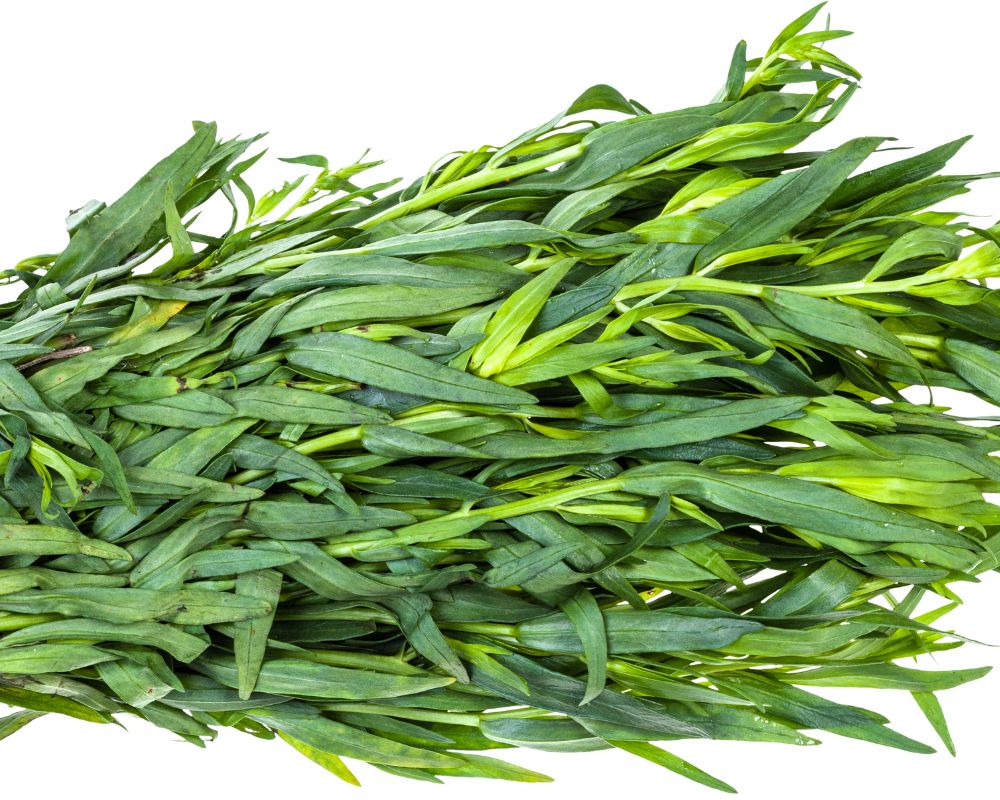
Tarragon is an herb with a sweet and slightly bitter flavor, with notes of licorice. It is a great anise substitute in savory dishes like sauces, marinades, and dressings.
Tarragon has a milder flavor than anise, so it may not provide as much of a licorice taste, but it can still add a sweet and herbal flavor to the dish.
Substitution ratio: 2 teaspoons of star anise mean 1 teaspoon of tarragon.
10. Chervil
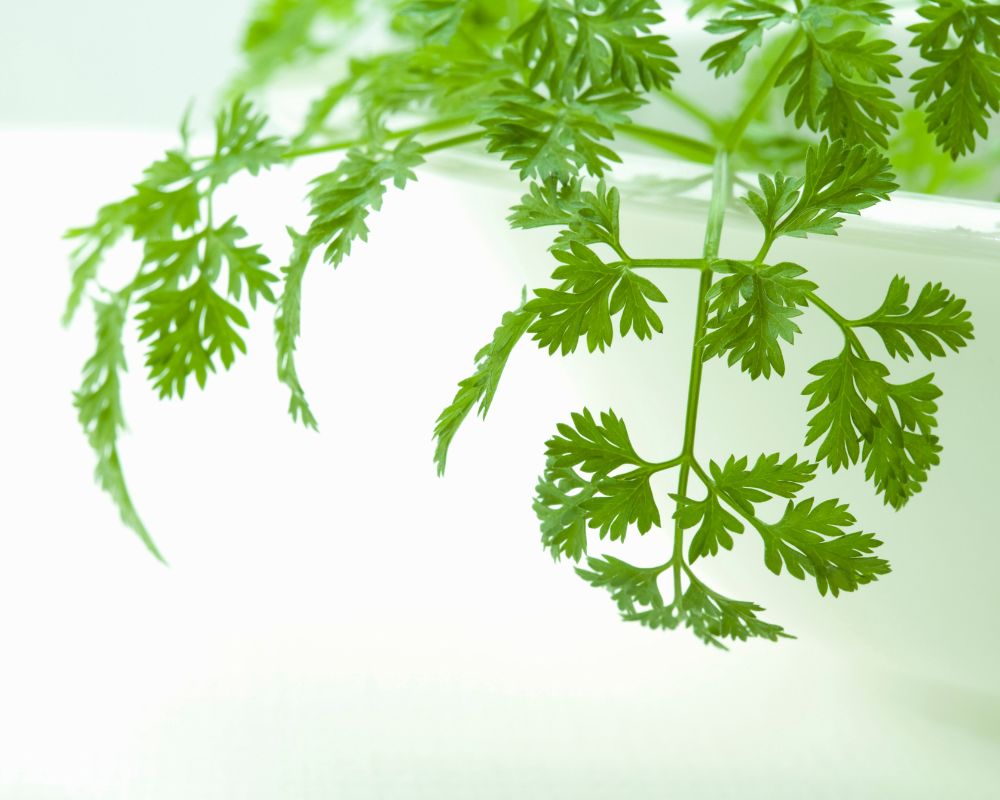
Chervil is another herb with a sweet flavor, hints of parsley, and an earthy taste. It substitutes for anise in savory dishes like soups, stews, and sauces. Chervil also has a much milder flavor than anise.
The substitution ratio is 2 teaspoons of chervil to 1 teaspoon of star anise.
11. Licorice Liqueur
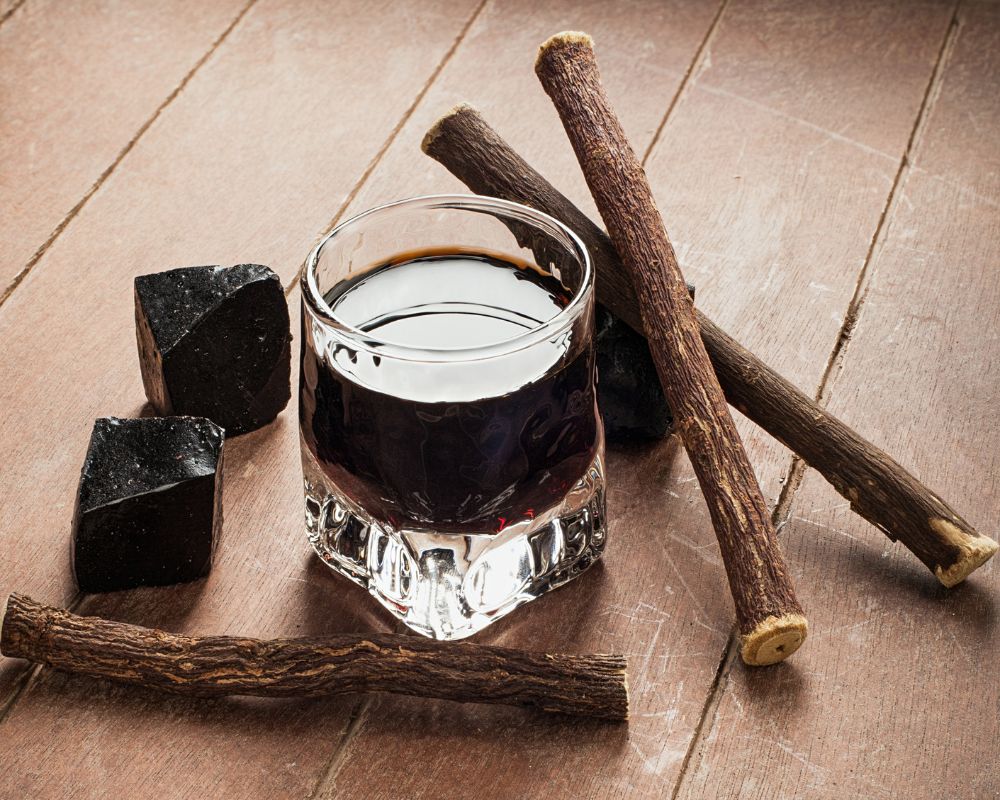
Licorice liqueur is a sweet and strong alcoholic beverage made from anise seeds. Licorice liqueur can be used as a substitute for anise in recipes that call for anise-flavored liqueurs, such as sambuca and ouzo, or in savory dishes that require a sweeter flavor (such as curries). It would be best to use it sparingly since it has a strong flavor.
To substitute, use 1 to 2 teaspoons of licorice liqueur for every 1 teaspoon of star anise.
Can I grind star anise myself?
The best way to grind star anise is to use a spice grinder or the classic mortal and pestle. That way, you know that the flavor will not get lost.
Here are the steps you have to follow:
- Start by selecting fresh, whole-star anise pods. Look for pods that are plump, fragrant, and unbroken.
- Break the star anise pods into smaller pieces, if necessary. This will make the grinding process more straightforward.
- If using a spice grinder, add the pieces of star anise to the grinder and pulse until you reach the desired consistency. If using a mortar and pestle, place the pieces of star anise in the mortar and use the pestle to grind them into a fine powder.
- Be sure to grind only as much star anise as you need, as ground spices can lose their potency and flavor over time.
- Once the star anise is ground, use it immediately or store it in an airtight container in a cool, dry place away from direct sunlight.

